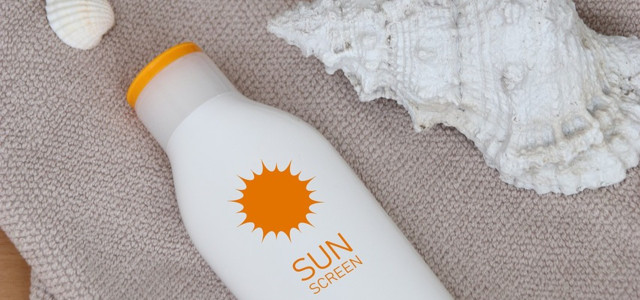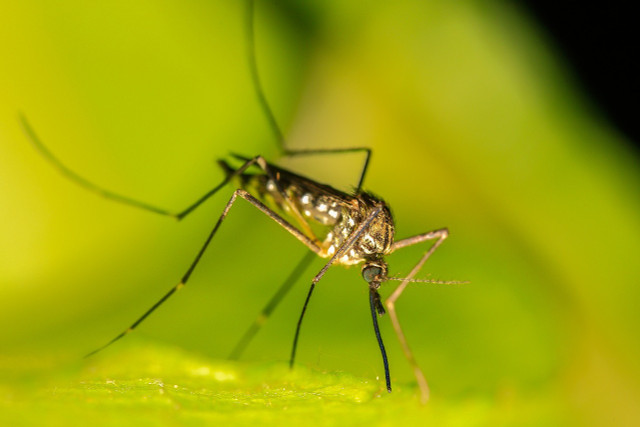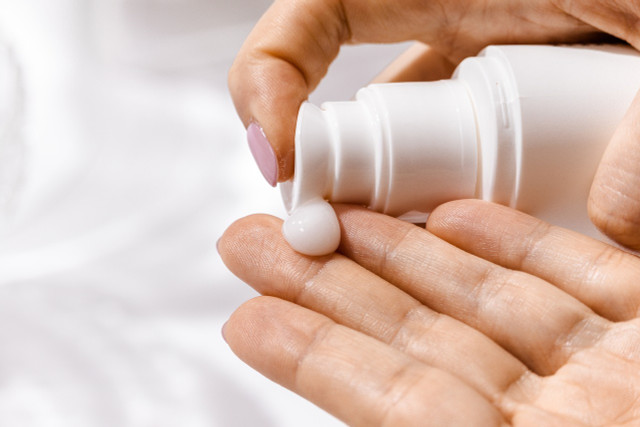
The warm weather in the summer months invites you to spend a lot of time outside. Sunscreen and mosquito repellent should not be missing from outdoor activities. But what do you actually apply first? You can find the answer here.
Anyone who spends a lot of time outdoors in the summer will be familiar with the situation: the long, warm days invite you to indulge in a variety of outdoor activities, but at the same time the sun burns mercilessly from the sky, especially in the midday hours, and when you have a picnic in the countryside or a day swimming at the lake, you are besieged by swarms of mosquitoes.
That’s why it’s important to remember that whether you’re hiking, cycling, camping or taking another trip into nature, you should always have sunscreen and mosquito repellent with you.
This can raise the question of how to use the products correctly. Here you will find out in which order you should apply sunscreen and mosquito spray and what else you should consider for comprehensive protection.
Apply sunscreen before mosquito spray

(Photo: CC0 / Pixabay / mathias70)
When applying sunscreen and mosquito repellent, both the order and the timing are important.
-
As a rule of thumb, the most important thing always comes first. In this case, that is sun protection, regardless of whether you use it as a cream, lotion or solid stick. Consistently protecting your skin from UV radiation and the possible damage it can cause is essential to staying healthy in the long term.
- After applying sunscreen, you should wait at least 15 minutes before using mosquito spray. There are two reasons for this: Firstly, this allows the sunscreen to sit on the skin sufficiently or to be absorbed into the skin. If you apply the mosquito spray too quickly, the two products will mix, which could reduce the sun protection effect by up to 30 percent. Secondly, the fragrances in the sunscreen could otherwise mask the insect-repellent aroma of the mosquito spray and thus reduce its effectiveness.
Conventional sunscreen and mosquito spray: bad for health and the environment
Many conventional sunscreens and mosquito sprays contain chemical ingredients that are potentially harmful to health and can also harm the environment.
Carcinogenic benzophenones, which were previously contained in many sunscreens, have been banned in the EU since 2023, but not the substance octocrylene, which is still permitted as a UV filter. Octocrylene is converted into benzophenone when sunscreens are stored for a long time and therefore makes older sunscreens, even if they are unopened, potentially carcinogenic. Furthermore, octocrylene harms marine organisms and should therefore never be used before swimming in the sea.
Most conventional mosquito and tick sprays also contain the chemical substances DEET or Icaridin. These are biocides and are therefore harmful to aquatic organisms and microorganisms – for this reason you should not apply conventional sprays before swimming in a lake or sea. The chemical ingredients in the sprays also irritate the mucous membranes and can cause headaches, dizziness and numbness. DEET should also not be used on pregnant women and children under eight years of age as it has a neurotoxic effect.
Sustainable alternatives for sun protection and mosquito spray

(Photo: CC0 / Pixabay / AdoreBeautyNZ)
The best protection against UV rays and mosquitoes is still long, airy clothing. Wearing a hat is also recommended for outdoor activities. You can also drive mosquitoes away.
You should choose sunscreen and mosquito spray based on natural ingredients if possible. In our best list for organic sunscreen you will find sustainable product recommendations. As an alternative to buying it, you can make mosquito spray yourself.
Note: Making your own sunscreen is not recommended:
Read more on Techzle\.com:
- UV protective clothing: the more environmentally friendly sun protection?
- Mosquito larvae in the rain barrel: How to reduce the mosquito plague in summer
- Protection against ticks: How to avoid bites
** marked with ** or orange underlined Links to sources are partly affiliate links: If you buy here, you are actively supporting Techzle\.com, because we then receive a small part of the sales proceeds. .